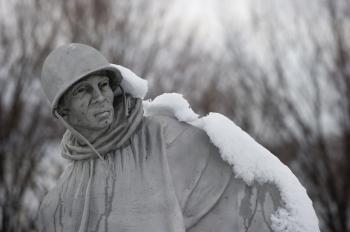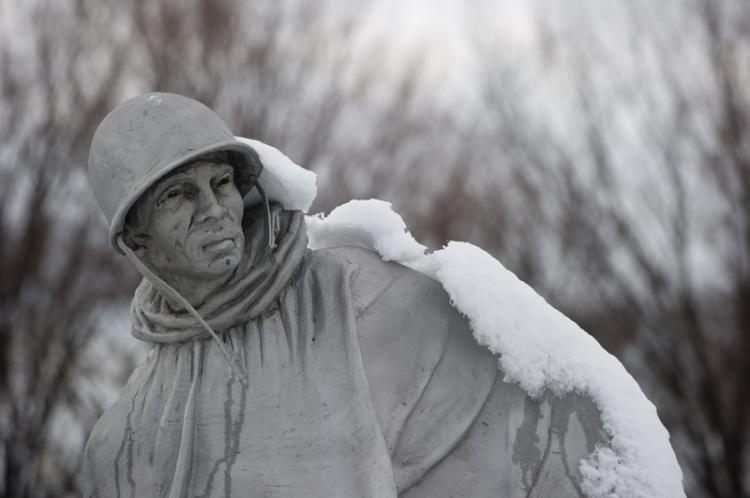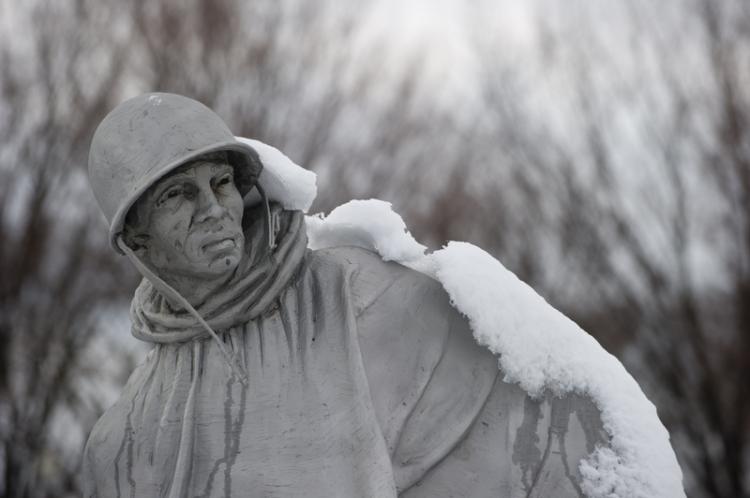Insider Reveals Why the CCP Sent Troops During the Korean War
Although time has long since cleared the smoke of the war, the vast majority of Chinese people are still deceived by the lies about the war invented by the Chinese Communist Party.

Snow covers the Korean War Memorial in Washington DC. Despite 60 years has passed since the Korean War, the truth about the war still remains concealed in mainland China. Saul Loeb/Getty Images
|Updated:

